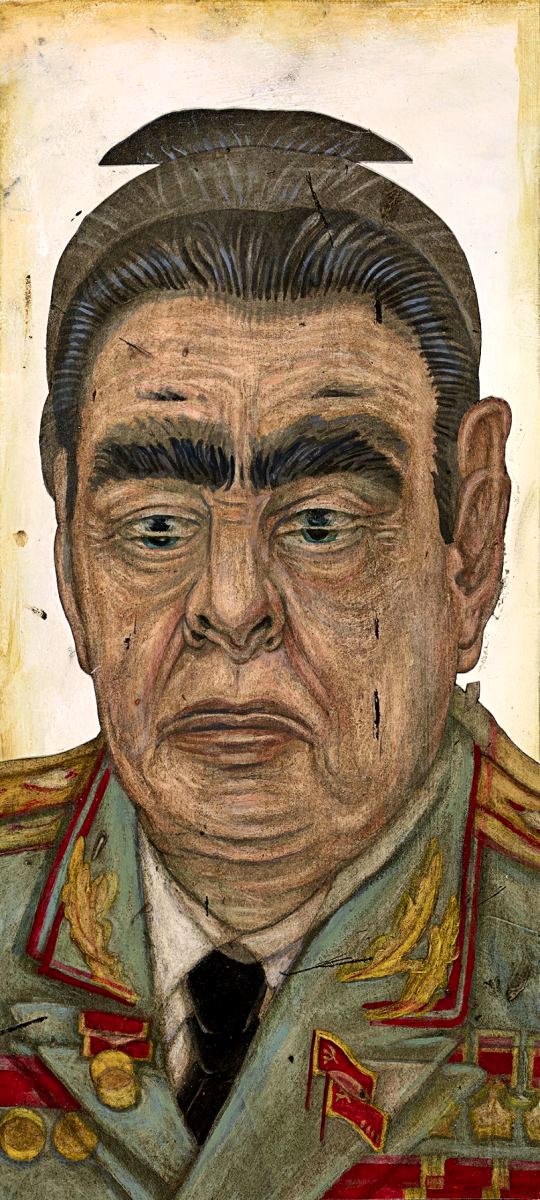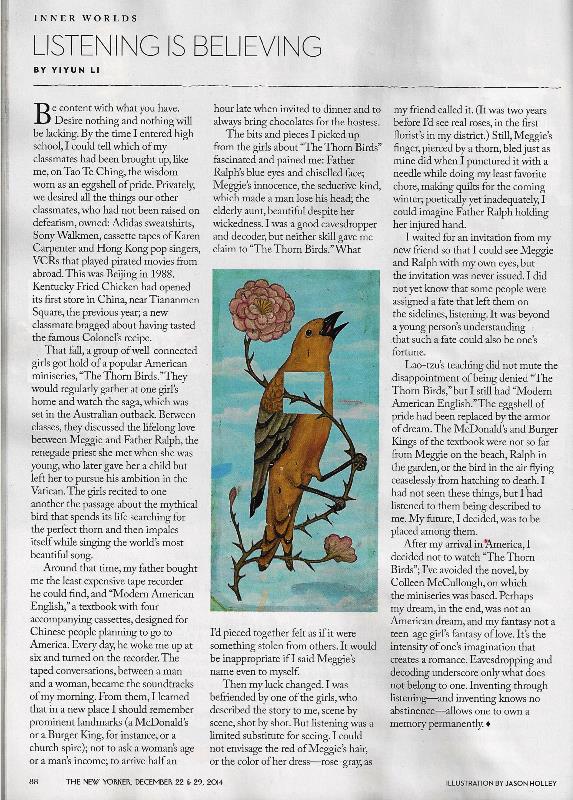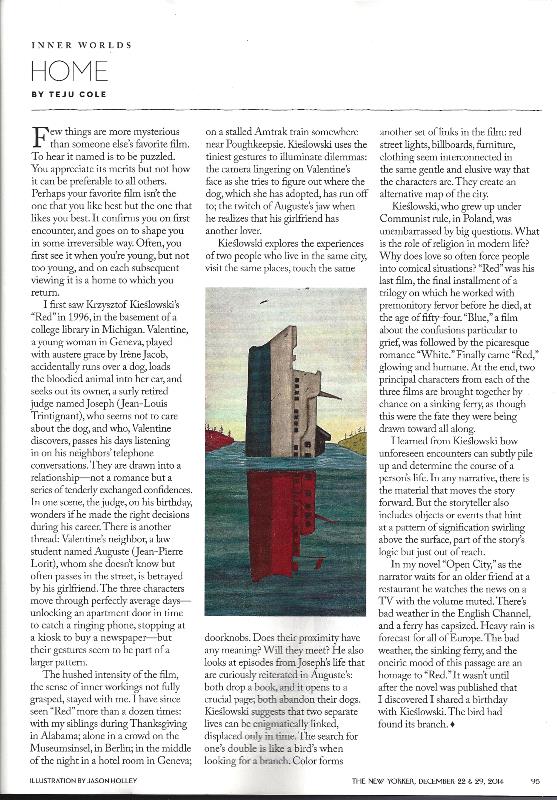 |
 Brezhnev Bus Stop By
Tatyana Tolstaya Brezhnev
died on November 10, 1982, just a few days
after I was operated on at Dr. Fyodorov’s famous eye clinic. I was
nearsighted,
and Fyodorov and his doctors, it was said, could correct your vision.
They made
incisions in the cornea, so that it splayed open and then healed closer
to the
lens, where the rays of light focus. (Imagine that you bought a beret
that was
too small, then made slits along the radius and inserted wedges so that
it
would fit your head.) They made the cuts with a Neva razor; they
weren’t using
lasers yet in 1982. The
doctor’s art consisted of making these incisions
at the correct depth, so that, when the eyes healed, your vision would
be
20/20. You would be able to read not just the big letters at the top of
the
chart but the tiny ones at the very bottom as well. However, for the
three
months it took to heal you’d have aches and sharp pains, and produce
abundant
tears in the presence of even the slightest light. Nighttime was
easier, but
the color green, for some reason, was torture. Traffic-light green. The
excruciating pain lasted a week; after that, the flame under the frying
pan was
turned down, and the sauce just simmered, flaring up occasionally as
chili
peppers were added. First,
they operated on one eye, and then, a week or
so later, on the other. My first operation must have been on November
5th. It
couldn’t have been on November 7th—the Revolutionary holiday—or on
November 8th
or 9th, because it’s a well-known fact that after holidays doctors’
hands
tremble. And November 6th was a short workday, because, well, everyone
needed
time to stand in line, in case the stores happened to have something
that was
usually in short supply. I
had the operation, and then for two days the whole
country ate potato salad with mayonnaise, fish in sour cream, and
homemade
cookies, called “nuts,” that were filled with boiled condensed milk.
Then there
was the hangover, low skies, occasional snow flurries, sluggishness,
and, as
always . . . But, no, not at all as always! Brezhnev died! Unbelievable! We
had thought that Brezhnev was eternal. Not
because he was good or bad or because he understood things or was truly
as
dense as a sack of Party potatoes, as he was in the jokes told about
him:
“Comrade Brezhnev, Christ is risen!” “Thank you, I’ve already been
informed.”
He simply was. He hung over the land like a thick cloud, from which
rain lashed
out or snow fell in heaps. Then, suddenly, the climate changed. But to
what, no
one could say. Once
the holidays were over, the pastries had all
been eaten, and the tremor in surgeons’ hands had abated, the day to
remove my
bandage and operate on the other eye arrived—November 15th. I took the
metro to
the end of the line, and then travelled by bus to Fyodorov’s clinic, in
Beskudnikovo. The bus slowly made its way across railroad tracks, past
beer
stands with long lines, alongside mountains of crushed rock and garbage
dumps,
through far-flung villages slated for demolition. Angry snowflakes came
spinning down from the gloomy sky as I looked blurrily out the window
with one
eye. Brezhnev
had died on the tenth, and now, after four days
of official mourning, he would be buried. Five minutes of silence were
to be
observed as he was lowered into the ground. The whole country stopped
for five
minutes, and the bus that was carrying me stopped, too—right on the
train
tracks that it was crossing. We were almost at the eye clinic, but the
driver
turned off the engine. It grew quiet and cold. I looked around. There
were ten
or so people on the bus, all of them patients of the clinic, each with
a
bandaged eye. I
could sense, physically, the rage that was growing
around me. Ten half-blind Soviet people sat in a bus as cold as the
grave,
while snow whirled and beat against the windows. Ten Cyclopes kept
their single
eyes lowered, so as not to betray any emotion, but the position of the
mouth and
the lines in the forehead can be more eloquent than words or eyes. By
the time
the five minutes were up, we were all exhaling vapor; the air in the
bus was
freezing. Then
the motor turned over, revved, and a weak
stream of warm air began to flow. Thus we bade farewell to an era.  Yiyun Li: Lắng nghe là Tin
tưởng
Tờ The New
Yorker có mục “Thế Giới Nội”, dành cho đám nhà văn mũi lõ tập tành viết
Tạp Ghi
như… GCC. 
|